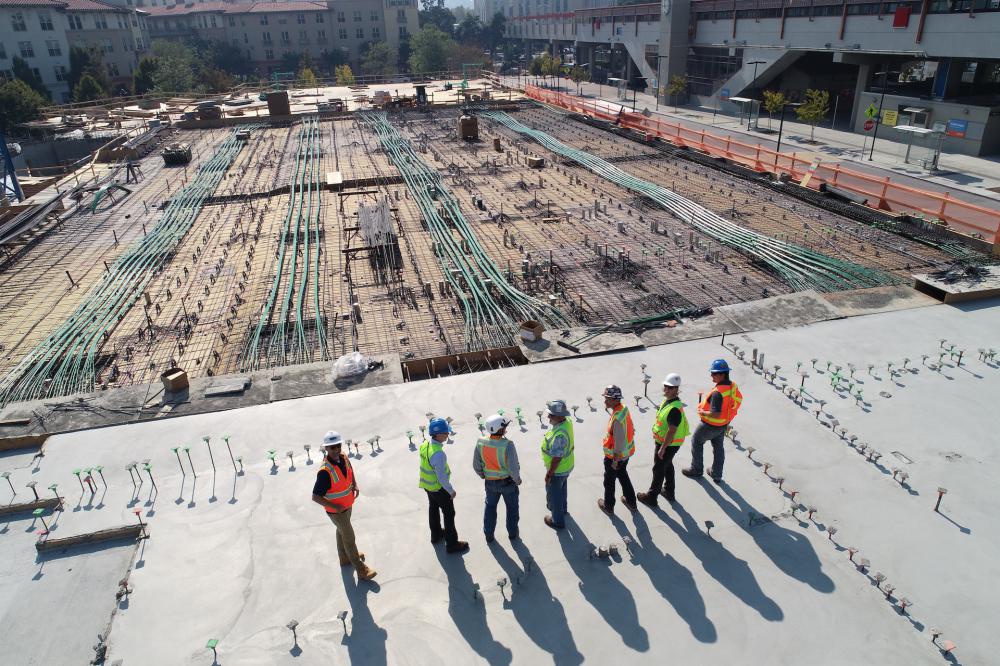As a construction company, you rely on your team’s hard work and dedication to ensure the success of projects. However, with all that hard work comes great responsibility: ensuring a secure workplace for all employees. The risks involved in the construction industry are numerous, from liability issues to dealing with hazardous materials. But an often-overlooked factor is security — specifically appropriate cybersecurity measures to protect against unauthorized activity and possible data breach incidents. By taking the right steps upfront, you can proactively mitigate these potential threats while helping maintain a safe and productive working environment for everyone involved in your business. In this blog post, we'll dive deeper into why construction companies need to be aware of their security concerns as well as what measures they should take when implementing appropriate cyber protections throughout their organization.
Understand how Risks are hanging in the Construction Industry
The construction industry is always evolving and with that comes new risks. It's important for those in the industry to understand how these risks are changing. One major factor that is affecting the construction industry is modern technology. Building materials are becoming more complex and so too are the machines used to construct buildings. As a result, potential risks like accidents and equipment malfunction are becoming more intricate. Climate change is also impacting the industry - extreme weather conditions can increase the risk of accidents as well as damage to buildings. Also, companies such as Prime Secure can provide cyber security systems that are tailored to the construction industry. This helps ensure that a construction site is properly protected from external threats as well as internal issues. By acknowledging and addressing these changes, construction companies can better manage risks and keep their employees safe while on the job.
Learn the Best Practices for Securing your Sites
In the ever-evolving world of technology, securing your website is one of the most crucial steps you can take to protect your virtual infrastructure. The consequences of neglecting website security can be disastrous, ranging from data breaches to financial loss and reputational damage. Therefore, it's important to understand the best practices for fortifying your site against attacks, like implementing SSL certificates, updating software and plugins regularly, using strong passwords, and restricting access to sensitive information. By taking proactive steps to secure your website, you can ensure your users' safety and maintain the integrity of your online presence.
Utilize the Right Hardware and Software Solutions to Protect Data and Equipment
Companies use a rising quantity of sensitive data and technology, making it more crucial than ever to safeguard them against attacks and security breaches. Securing these assets requires the use of appropriate hardware and software solutions. Antivirus software, firewalls, and proper encryption are just a few examples of essential technologies that any business needs to have. A data breach can be extremely expensive, both financially and in terms of reputational harm. Instead of reacting and attempting to repair a tarnished reputation or damaged business, it is preferable to be proactive and invest in adequate protection. Businesses may relax knowing that their data and equipment are secure by using the appropriate hardware and software solutions.
Monitor Access to Construction Sites with Keycard Systems and Biometric Scanners
When it comes to ensuring the safety and security of construction sites, monitoring access is key. With the advancements in technology, there are now various options available to achieve this. Keycard systems can be used to limit access to authorized personnel only, preventing unauthorized entry. Biometric scanners can take security to the next level, by using unique physical attributes such as fingerprints to verify access. Other options such as CCTV and infrared sensors can also play a role in monitoring activity around construction sites. By implementing these measures, construction site managers can have peace of mind knowing that they are doing everything possible to protect their site and those working on it.
Implement an Incident Response Plan to Address Security Incidents Quickly and Effectively
Securing the sensitive data and information of your organization against security incidents is an urgent necessity in today's rapid-fire and perpetually shifting digital world. Implementing a strong incident response plan is crucial to preventing such incidents. An incident response plan defines the necessary activities and processes to rapidly and effectively deal with any security breaches or threats. It aids in reducing damage and downtime for your organization and quickly thwarts any possible intruders. Being reactive is not the only goal of a strong incident response plan. In order to improve your organization's security posture and get ready for inescapable security incidents, you must take the initiative. To protect your company, start by putting an incident response plan into place right away.
Invest in Employee Training so that Everyone is aware of Proper Security Procedures and Protocols
By spending money on employee training for security procedures and policies, your company may be able to avoid such data breaches. Because they will be aware of how to safeguard sensitive information, it will also give your employees a sense of empowerment. Through adequate training, which can give them the ability to detect and mitigate security threats, it is possible to instill in employees a sense of ownership and accountability in the protection of sensitive data. By investing in employee training, businesses may lower the chance of security breaches and promote a culture of security awareness, which ultimately protects the organization's brand and financial well-being.
In conclusion, it is always important for construction companies to understand the risks that exist in the industry and to take steps to keep their sites secure. Knowing what security concerns exist and which best practices to follow is paramount. Utilizing the right hardware and software solutions will help protect data, equipment, and personnel on the job site. Additionally, keycard systems, biometric scanners, and other tools can help control access to the site. Adopting an incident response plan can also make sure that security incidents are addressed quickly and efficiently to minimize damage. Finally, investing in proper employee training ensures that everyone understands how to maintain secure conditions throughout all construction sites. With these strategies in place, construction businesses can stay secure while leading with innovation in their field.







